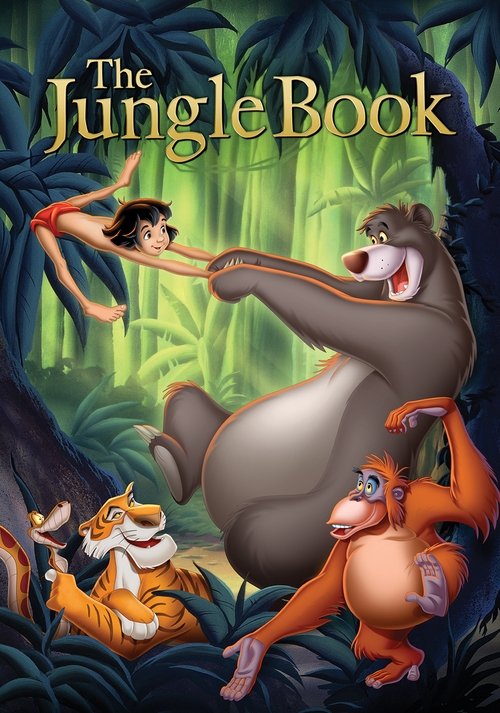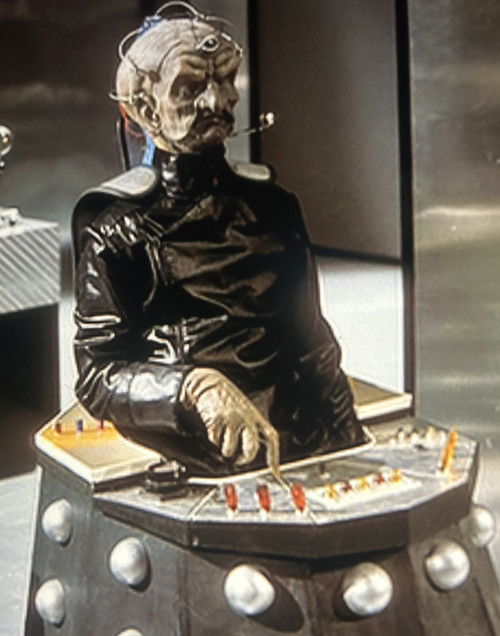
The Jungle Book
Released: 1967-10-18
The boy Mowgli makes his way to the man-village with Bagheera, the wise panther. Along the way he meets jazzy King Louie, the hypnotic snake Kaa and the lovable, happy-go-lucky bear Baloo, who teaches Mowgli "The Bare Necessities" of life and the true meaning of friendship.
Family
Animation
Adventure
7.3 / 6550
Duration: 78 min.
Budget: $4.0M
Revenue: $378.0M
Trailer
Gallery
Reviews

Kamurai
Rating:6/10
Good watch, might watch again, and can recommend if you've seen any other version or are looking for a writing analysis. During a lot of the movie, I was kind of in nostalgia mode, remember things I saw / felt when I was a kid, just sort of enjoying the way back machine experience. It wasn't until almost the very last scene that it clicked how good the writing is in this. I know this is known for the excellent animation styling, the catchy tunes, and charming coming of age semantics, but this uses several strong formulas that have been used since Aesop's fables. And that's what made me realize the writing quality, I felt as if I was watching an on fable with moral lessons of consequence. Up until that point I was mentally preparing how this 1967 animation is actually a perfect metaphor for 2020 entitled child entering the real world: never being told no, even to the threat of great, potentially lethal, loss because even in the face of danger, they've been taught that they deserve, even in the logic that it can't be true on both sides though both believe that. Hmmm, that sounds a lot like religious war. Digressing back to the writing: Mowgli embodies naivety, narcissism, entitlement, whatever you would like to call as he's a victim / ward of extreme chances of compassion: he just happens to luck into survival wherever he goes. While Tarzan makes more sense, this is character development for the series of situations (each one their own potential fable) with the main character shifting to and fro from Bagera to Mowgli to Balloo, each one being taught lessons as the adventure continues. With the representation of the jungle and the adversities that Mowgli faces, Mowgli slowly learns what Bagera and Baloo both know: most people are only interested in their own interests, but sometimes those that have enough can be in a position to help others. The xenoism (racism) that Sher Khan has for Mowgli as a human is enough for these predators give up his companionship to help him to the man-village. The really odd lesson is that Mowgli embraces the self-interest needed in the jungle, despite dialogue to the contrary.
Hover to reveal

CinemaSerf
Rating:7/10
This has probably the most perfect balance of story and soundtrack of any film I've ever seen - animated or otherwise. Adapting Rudyard Kipling's tale of "Mowgli" the child abandoned in the Indian jungle, but rescued and raised by a family of wolves. "Bagheera", the sagacious panther realises as the boy starts to grow to manhood, that he ought to return to his own kind but "Baloo", the avuncular bear thinks otherwise and so takes our young man-cub on some fun adventures in the jungle - including some near-misses with the wonderfully menacing, sardonic tiger "Shere Khan" and "Kaa" the hypnotic python. The voice cast - especially Phil Harris as the bear and George Sanders as the tiger are great; Louis Prima as "Louie" the King of the Apes provides us with one of the best songs ever to feature in a Disney film - and the Sherman brothers provide a great slew more of them for us to enjoy, too. The detail in the animations and the humour in the script are super - this really is a must watch.
Hover to reveal